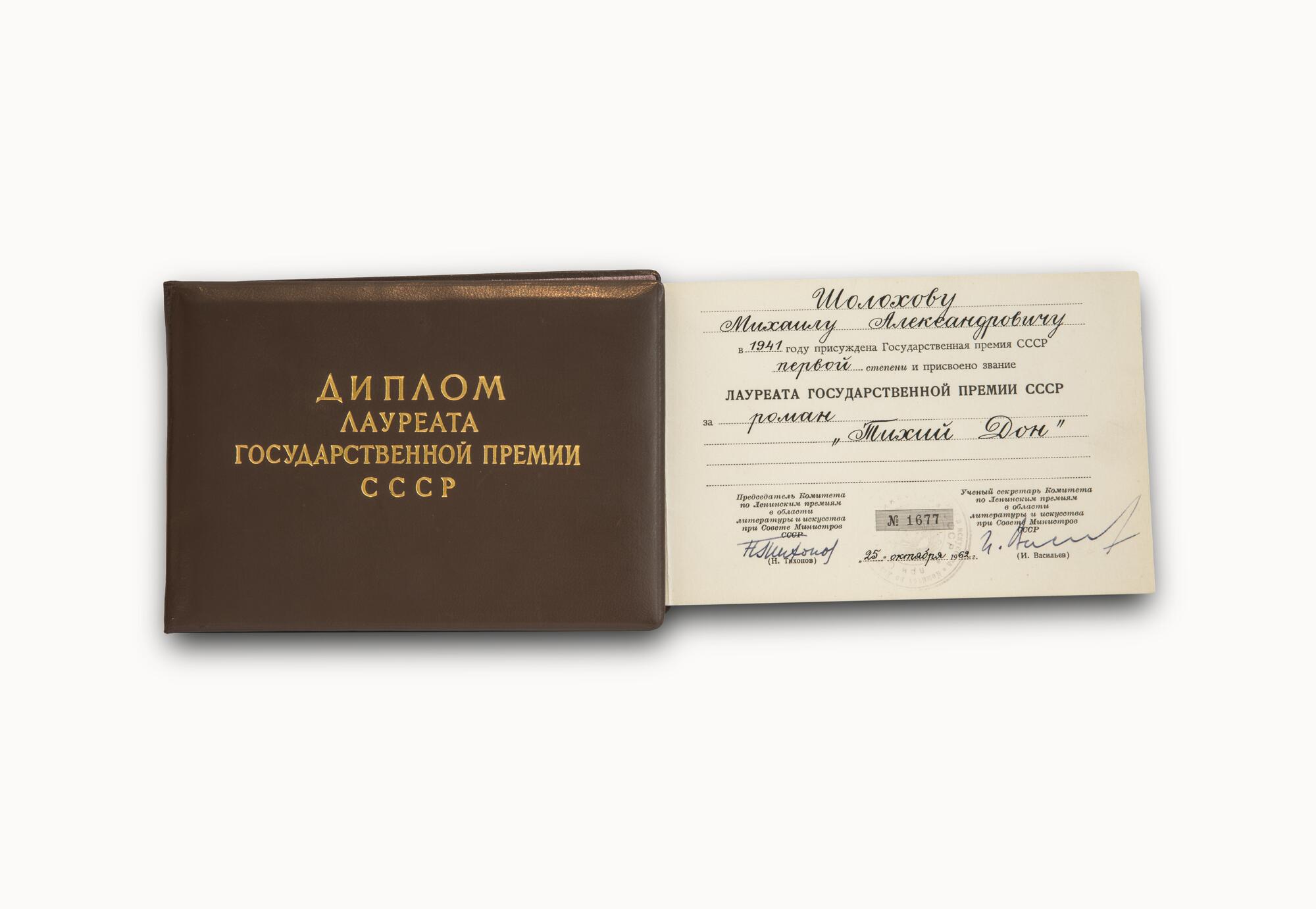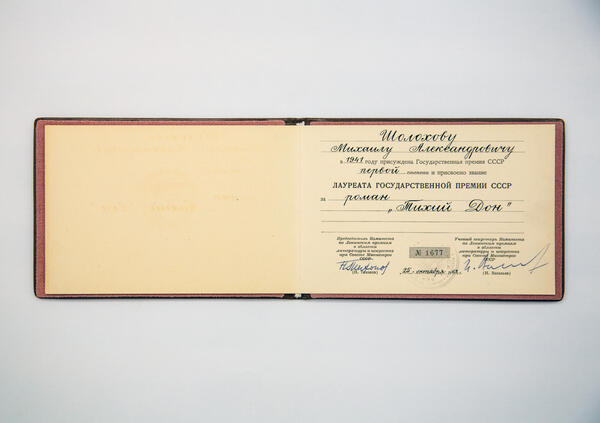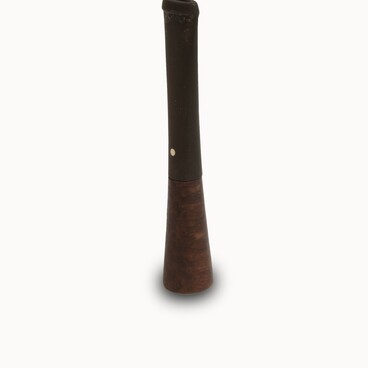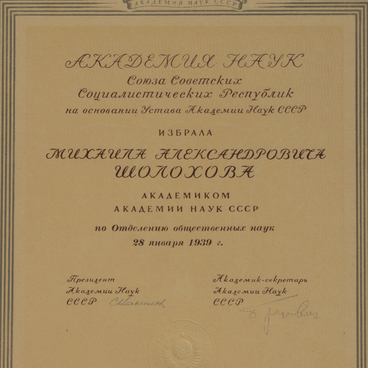The Stalin Prize was the highest state award for literary workers in the Soviet Union. Established on February 1, 1940, by a decree of the Council of People’s Commissars of the Soviet Union, it was awarded to authors in four categories: poetry, prose fiction, drama, and literary criticism.
Candidates were nominated by a special Committee. The process of nominating, discussing, and awarding candidates for the Stalin Prize became one of the most significant events in the cultural and ideological life of the Soviet Union. The campaign continued for over a year and attracted prominent and influential leaders.
The controversy around Sholokhov’s novel “And Quiet Flows the Don” blazed up in the spring of 1940 and continued until early 1941. It moved beyond the Committee’s meetings and over to newspapers and magazines. “And Quiet Flows the Don” was nominated for the Stalin Prize in the category of prose fiction by the Presidium of the Union of Soviet Writers — a decision that was supported by the Gorky Institute of World Literature.
The Members of the Stalin Prize Committee found themselves in a tricky situation. They needed to single out a book that would not only be of high artistic value but also indicate the way for other Soviet writers. Sholokhov’s novel, however, contradicted the political ideology.
Nevertheless, most members of the Committee stated their intention to vote for the novel “And Quiet Flows the Don”. The final decision was made only four months later, and Sholokhov was awarded the Stalin Prize of the 1st class. During the early days of the Great Patriotic War, the writer donated the cash prize to the Soviet Defense Fund. Sholokhov received the diploma accompanying the USSR State Prize almost twenty years later, in 1962.
Candidates were nominated by a special Committee. The process of nominating, discussing, and awarding candidates for the Stalin Prize became one of the most significant events in the cultural and ideological life of the Soviet Union. The campaign continued for over a year and attracted prominent and influential leaders.
The controversy around Sholokhov’s novel “And Quiet Flows the Don” blazed up in the spring of 1940 and continued until early 1941. It moved beyond the Committee’s meetings and over to newspapers and magazines. “And Quiet Flows the Don” was nominated for the Stalin Prize in the category of prose fiction by the Presidium of the Union of Soviet Writers — a decision that was supported by the Gorky Institute of World Literature.
Apart from the novel by Sholokhov, the Committee considered the works of Wanda Wasilewska, Sergey Sergeyev-Tsensky, Leo Kiacheli, Valentin Kataev, Fyodor Panfyorov, and Anatoly Yanovsky. “And Quiet Flows the Don” immediately provoked heated debates: while being the center of attention in the nomination procedure and significantly superior to other contemporary books in its artistic merits, there was an apparent discrepancy between the concept of the novel and the official ideology. Soviet readers and critics could not accept the fact that the main character Grigory Melekhov became a criminal.
The Members of the Stalin Prize Committee found themselves in a tricky situation. They needed to single out a book that would not only be of high artistic value but also indicate the way for other Soviet writers. Sholokhov’s novel, however, contradicted the political ideology.
Nevertheless, most members of the Committee stated their intention to vote for the novel “And Quiet Flows the Don”. The final decision was made only four months later, and Sholokhov was awarded the Stalin Prize of the 1st class. During the early days of the Great Patriotic War, the writer donated the cash prize to the Soviet Defense Fund. Sholokhov received the diploma accompanying the USSR State Prize almost twenty years later, in 1962.



